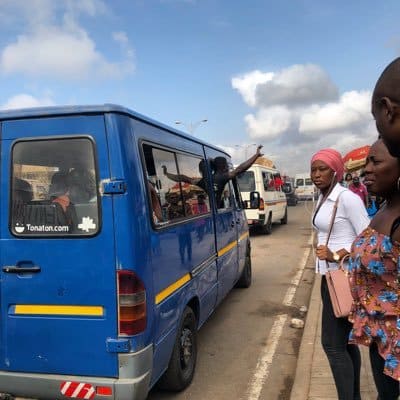In Ghana and neighboring countries, TroTro is a popular mode of transportation that adds a unique charm to the streets. These privately owned minibus share taxis follow fixed routes and depart when they are filled to capacity, providing an affordable and convenient way to get around. While there are designated tro tro stations, you can also flag one down anywhere along its route, making it quite flexible.

When you hop on a tro tro, you’ll encounter two important figures: the driver and the conductor, who is affectionately called a “mate.” The conductor’s role involves collecting fares, announcing the destination with enthusiastic shouts, and ensuring everything runs smoothly. You’ll notice that many tro tros are adorned with colorful decorations, including vibrant slogans and religious sayings, adding a touch of personality to your journey. It’s worth noting that tro tros are less frequent on Sundays, so it’s good to plan accordingly.

The term “tro tro” is believed to have originated from the Ga language, where “tro” means “threepence.” In the 1940s, when Ghana used the British West African pound and later the Ghanaian pound, the conductors would often ask for “three three pence” as the standard bus fare. Another interpretation suggests that “tro tro” could mean “threepence [thruhpnce, tro] each,” indicating that the fare was three pence per passenger. In the early 1960s, before the currency was decimalized into cedi and pesewa in 1965, three pence was the price per passenger, including the use of threepence coins.

Whether you’re commuting to work, exploring the city, or visiting a local market, hopping on a tro tro is a delightful way to experience the vibrant atmosphere of Ghana’s bustling streets. So next time you’re in town, don’t hesitate to catch a tro tro and join the friendly locals on their colorful journey!






































